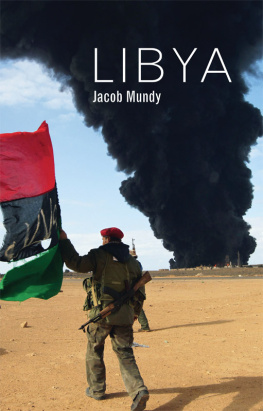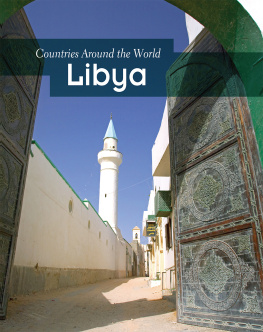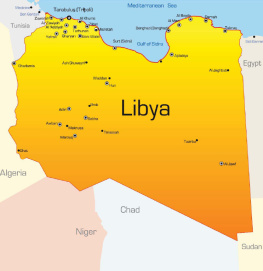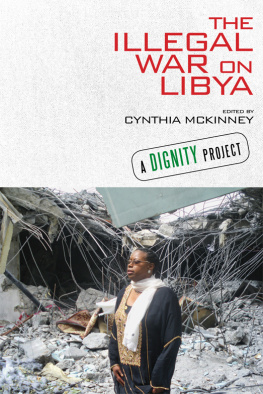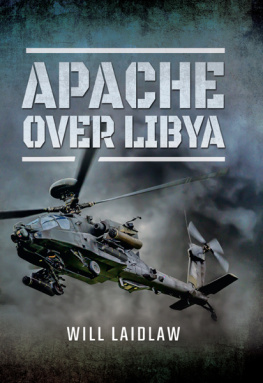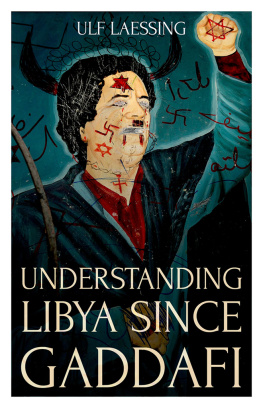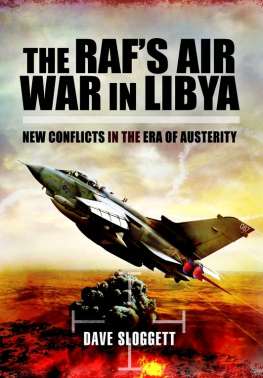
Series Title
Hot Spots in Global Politics
- Samer N. Abboud, Syria, 2nd edition
- Christoph Bluth, Korea
- Alan Dowty, Israel/Palestine, 4th edition
- Kidane Mengisteab, The Horn of Africa
- Amalendu Misra, Afghanistan
- Robert Springborg, Egypt
- Gareth Stansfield, Iraq, 2nd edition
- Jonathan Tonge, Northern Ireland
- Thomas Turner, Congo
Copyright page
Copyright Jacob Mundy 2018
The right of Jacob Mundy to be identified as Author of this Work has been asserted in accordance with the UK Copyright, Designs and Patents Act 1988.
First published in 2018 by Polity Press
Polity Press
65 Bridge Street
Cambridge CB2 1UR, UK
Polity Press
101 Station Landing
Suite 300
Medford, MA 02155, USA
All rights reserved. Except for the quotation of short passages for the purpose of criticism and review, no part of this publication may be reproduced, stored in a retrieval system or transmitted, in any form or by any means, electronic, mechanical, photocopying, recording or otherwise, without the prior permission of the publisher.
ISBN-13: 978-1-5095-1872-2
ISBN-13: 978-1-5095-1873-9 (pb)
A catalogue record for this book is available from the British Library.
Library of Congress Cataloging-in-Publication Data
Names: Mundy, Jacob, author.
Title: Libya / Jacob Mundy.
Description: Cambridge, UK : Polity Press, 2018. | Series: Hot spots in global politics | Includes bibliographical references and index.
Identifiers: LCCN 2018002852 (print) | LCCN 2018012032 (ebook) | ISBN 9781509518760 (Epub) | ISBN 9781509518722 | ISBN 9781509518722(hardback) | ISBN 9781509518739 (pbk.)
Subjects: LCSH: Libya--History--Civil War, 2011- | Libya--Politics and government--21st century.
Classification: LCC DT236 (ebook) | LCC DT236 .M79 2018 (print) | DDC 961.205--dc23
LC record available at https://lccn.loc.gov/2018002852
Typeset in 10.5 on 12pt Sabon
by Fakenham Prepress Solutions, Fakenham, Norfolk, NR21 8NL
Printed and bound in Great Britain by CPI Group (UK) Ltd, Croydon
The publisher has used its best endeavours to ensure that the URLs for external websites referred to in this book are correct and active at the time of going to press. However, the publisher has no responsibility for the websites and can make no guarantee that a site will remain live or that the content is or will remain appropriate.
Every effort has been made to trace all copyright holders, but if any have been inadvertently overlooked the publisher will be pleased to include any necessary credits in any subsequent reprint or edition.
For further information on Polity, visit our website: politybooks.com
Dedication
To Nolan
Figures
Population of Libya, 19602016
Libyan arms imports, 19702010 (billions of current US dollars)
Unemployment rate of Libyan male youths (ages 1524), 19912017
Daily totals of airstrikes conducted in Libya under NATO command, AprilNovember 2011
Estimates of deaths in Libya related to armed violent conflict, 201116
Acknowledgments
This book would not have been possible, first and foremost, without the insights provided by the various Libyan interlocutors who made my all-too-brief visits in 2012 and 2013 intellectually edifying. Those whom I can name publicly include Fawzi Abdesalam, Fathi Ali, Salah El Bakkoush, Wajdi Baraggig, Fathi Bashagha, Salim Beitemal, Salah Marghani, Taha Mohammed, Salah Ngab, Amal Obeidi, Mansour Ramadan, Taha Shakshouki, and the elders of Tawergha Camp Council in Janzur. Above all, I owe Sufyan Omeish, my research partner in 2012, a debt of gratitude for showing me aspects of the new and old Libya that I never would have seen. A band of others journalists, officials, specialists, scholars, etc. have also helped me navigate the thickets of Libyas politics before and after the 2011 revolution. Those who merit special recognition are Carlo Binda, Mietek Boduszyski, Peter Cole, Borzou Daragahi, Max Dyck, Mustafa Fetouri, Mary Fitzgerald, Ricky Goldstein, Dania Hamadeh, Salem Al-Hasi, Ahmed Labnouj, Aidan Lewis, Azza Maghur, Mansour Ramadan, Hanan Salah, Salwa Sheibany, John Thorne, Dirk Vadewalle, Mabrouka Al-Werfalli, and Yahia Zoubir. Additional forms of intellectual, logistical, and moral support for my research on Libya have been generously afforded by the American Institute for Maghrib Studies, Lindsay Benstead, Mary Casey and the Project on Middle East Political Science, Laryssa Chomiak, Irene Costantini, John Entelis, Stephanie Fishel, Mia Fuller, Greg Gause, Hala Hweio, Osamah Khalil, Bill Lawrence, Dan Monk, Martyn Oliver, David Patel, Bobby Parks, Nancy Ries, Jean-Louis Romanet, and all of my family (old and new). The team at Polity Press, particularly Louise Knight and Nekane Tanaka Galdos, deserve recognition for their endless patience and refreshing efficiency. Production assistance from Neil de Cort and scrupulous copy-editing from Justin Dyer are likewise very much appreciated. Needless to say, none of these persons bear responsibility for any errors or (mis)interpretations that follow.
Map

Introduction
For over half a decade, Libya has been ravaged by revolutionary violence, civil wars, and horrific acts of terrorism, all of which have further divided the polity, undermined the economy, fractured the states sovereignty, and elicited repeated foreign interventions. These waves of political instability wracking the fragile mosaic of Libyas society were unleashed as the forty-two-year reign of Colonel Muammar Al-Gaddafi came to its bitter and bloody end in 2011. Libyas anti-Gaddafi protestors, inspired by the successful revolutions in Tunisia and Egypt in early 2011, joined the Arab Spring in February, only to be dragged into an eight-month civil war that has irreparably fractured the nation. With military assistance from NATO and the Arab League, Libyas revolutionary militias, the thuwar, were finally able to depose the Gaddafi regime in the fall of 2011. Elections for a transitional government were soon held in the summer of 2012. Indeed, there was much hope and euphoria surrounding the possibilities facing a new Libya, a country with vast oil resources to finance its transition. Yet successive efforts to create a viable national authority only led to increasing social, economic, and political fragmentation across the country.
The primary question that drove the country back to civil war in 2014 was the extent to which Libyas new revolutionary forces should make any accommodation with the agents and institutions of the old regime. By the summer of 2014, Libya had two governments, both claiming electoral legitimacy and sovereignty over the country. Each was backed by unstable coalitions of militias representing a patchwork of ideologies and local interests. To make matters worse, a third government would emerge the following year. This one, however, would seek to extend the putative Caliphate of the Islamic State from the battlefields of Iraq and Syria to the scarred landscapes of Libya. In a desperate bid to hold Libya together, the North Atlantic powers backed the creation of a new interim national authority in late 2015 to lead the fight against the Islamic State and to stymie the flood of migrants and refugees leaving Libyas shores for Europe. Though there was some success with respect to the former, Libyas UN-backed Government of National Accord also complicated the already complex civil war that had erupted in 2014. By the end of 2017, questions continued to be raised as to whether or not Libya would become a failed state, if it were not already one.
Next page
